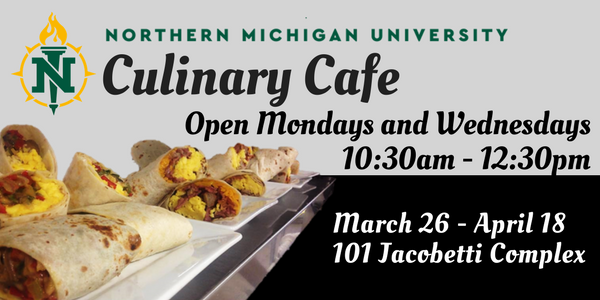There is currently no waiting list for students to setup a free appointment at NMU’s Counseling and Consultation Services (CCS). CCS provides confidential resources including individual counseling, group counseling and general consultations, along with access to seasonal affective disorder therapy lights and a CCS lending library.
The two main goals of NMU’s CCS is to reduce any stigmas, ideas or beliefs that prevent people from seeking help and to increase overall help seeking behavior, said Head of NMU’s CCS Marie Aho.
“If someone is in doubt about whether they have anxiety or clinical depression, they should come and talk to us,” Aho said. “Never worry about bothering someone or taking the time that someone else may need. Really, everybody is equally valuable and, by talking to us, we can find out what they need.”
The CCS office is open from 8 a.m. to 5 p.m. Monday through Friday. Services include scheduled appointments, along with same day crisis support if it is needed, Aho said.
If a student is in need of services after CCS business hours, the Dial Help Community Support and Outreach Center based in Houghton is available via text message, live chat or phone call 24/7 every day of the week, Aho said. In an emergency situation, where there is concern of immediate or imminent risk, students should call Public Safety at 906-227-2151, go to the emergency room at UP Health System-Marquette or call 911 immediately.
The Dial Help Community Support and Outreach Center provides crisis intervention service for issues including depression, anxiety, suicidal thoughts, self-harm, relationship break-ups, changes in life, difficult situations, abuse and assault. It also provides information and referrals to other agencies and organizations that may be able to help with any caller’s needs, according to, the Dial Help Community Support and Outreach Center website.
“They’re trained, they’re confidential and they’re available,” Aho said.

There have been times when students seeking an appointment with CCS have had to be put on a call back list due to high demand for services and limited staff. Aho said she experienced some of the highest demand for CCS services last semester and heard from colleagues that they were experiencing the same high demands at universities nationwide.
“There’s a lot of anxiety about threat… I think there was a lot of concern last semester—not just for us, but across the country,” Aho said. “Everyday I had people calling and saying, ‘Are you experiencing what we’re experiencing? We’re flooded.’”
Due to high demand for clinical services on a week-to-week basis, Aho said CCS doesn’t have time for the amount of outreach they would like to do.
Aho said helping students with clinical and developmental issues comes first and there are appointment blocks currently available at CCS, adding that any student who was discouraged from a previous semester’s call back list should not hesitate to call again.
The Counseling Center does not only work with clinical issues, but developmental issues as well, she said.
“I like to say, ‘no problem too big, no problem too small’ to get around that sense of ‘Well, I don’t think it’s bad enough. I don’t need to go.’ I mean we’re in the health business— the health and well-being business. If a student is having an issue that interferes with being healthy and functional, they should come.”
Developmental issues include issues involving family relationships, learning how to be in an intimate relationship, students learning how to be on their own for the first time and learning how to make friends in college, she said.
“This is a period where people are coming out of their adolescent peer group and into developing a lot of independence. I think college itself without those issues is a job. It’s a lot of hard work,” Aho said. “Then, you put all that personal development on top of that. It gets to be a challenge.”
Aho said it is important to inform students about how to be healthy in general by encouraging them to take care of themselves. Aho encourages students to pay attention to making sure to eat enough, sleep enough, exercise and participate in relaxation activities every day if possible. Examples of relaxation activities include outdoor activities, knitting and listening to music, she said.
“[Relaxation activities] really reduces stress and anxiety levels,” Aho said. “We’re taught as children, that we have to do all our work first and that we can only relax when we’re through with all our work. Well, you’re never through with all your work when you’re in school until graduation.”
Spreading awareness about self care is one of the main priorities of CCS, Aho said.
“The brain only works on oxygen and glucose, so if people don’t eat enough and often enough, it makes everything they do difficult,” she added.
It is also important to provide the NMU community with information on how to respond to those who confide in them about mental health issues, Aho said.
“Along with empowering the confidant, you empower everyone on campus to be comfortable talking to someone with a problem and giving them resources.”
CCS is located in 3405 Hedgcock and can be contacted at 906-227-2980. The Dial Help Community Support and Outreach Center can be reached at 906-482-4357 or 800-562-7622 or texted at 35NEEDS or 906-356-3337.























